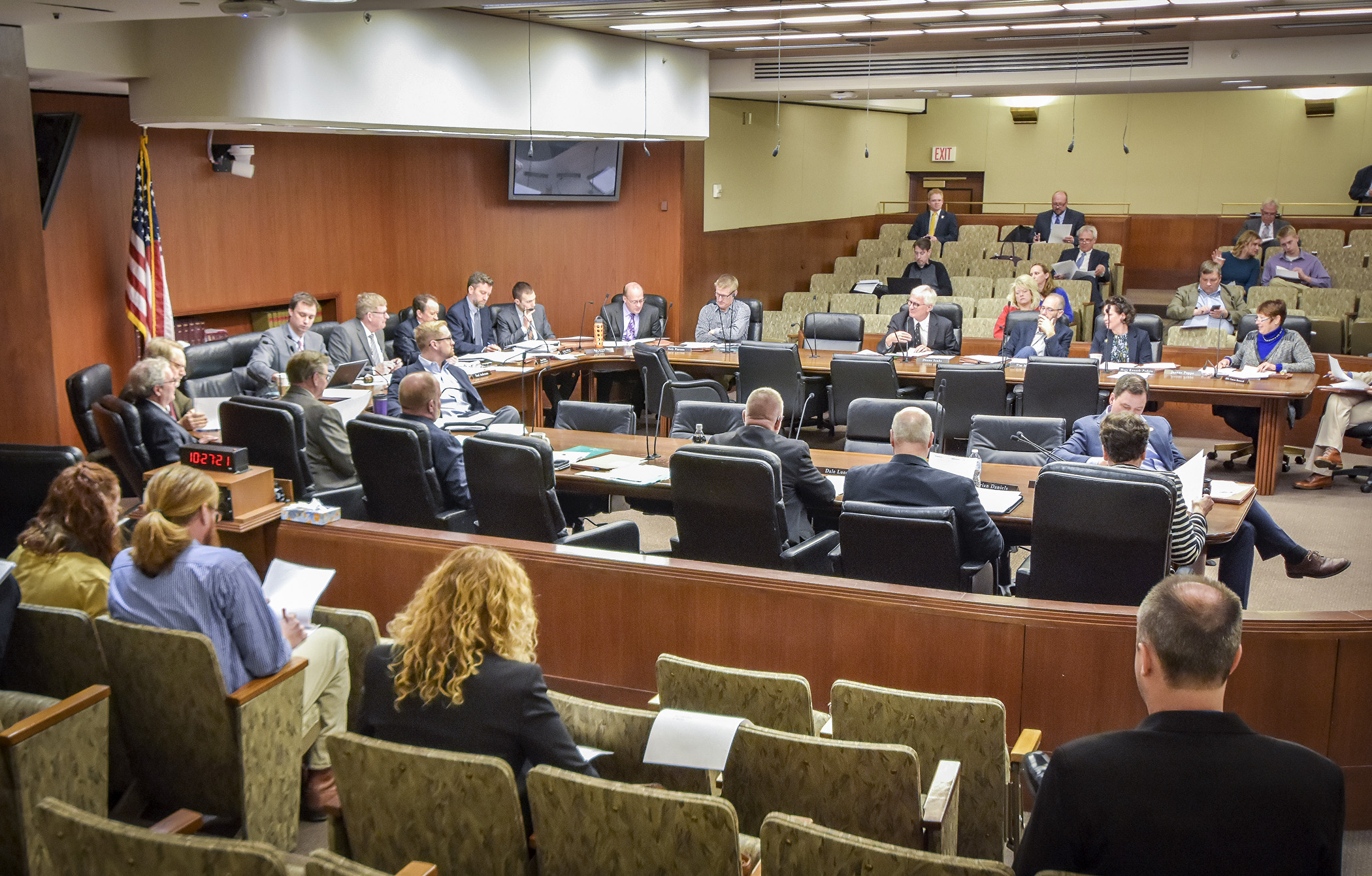Omnibus agriculture policy bill approved despite controversial provision

A provision that would prohibit the Department of Agriculture from adopting mandatory rules for nitrogen fertilizer without approval by the Legislature caused a split in the usually bipartisan House Agriculture Policy Committee Wednesday.
After adopting a delete-all amendment, the committee approved the omnibus agriculture policy bill, HF4133, as amended, sponsored by Rep. Paul Anderson (R-Starbuck) on a voice vote.
It would make several technical and policy changes, but the nitrogen language caused DFL committee members to vote against a bill several said they otherwise support. Elevated levels of nitrates in drinking water can be harmful to humans.
The provision prohibiting the department from adopting nitrogen rules mirrors HF2887, a bill sponsored by Rep. Jeff Backer (R-Browns Valley), which the committee debated March 15. Backer said Wednesday it isn’t the role of government agencies to create laws; that responsibility belongs to the Legislature, and this language allowed the process to function as it should.
But Rep. Clark Johnson (DFL-North Mankato) offered an amendment to remove the provision saying it added politics where it didn’t belong by including the Legislature, a partisan body, in the rulemaking process.
“To insert partisan politics into the kind of efforts we make to have clean drinking water … a fundamental need that every human being has, I think is the wrong way to govern,” Johnson said.
Johnsons’ amendment failed on a 10-6 party-line vote. An amendment offered by Rep. Jeanne Poppe (DFL-Austin), that she said would also have deleted the provision but clarified the Legislature’s role as one of oversight, was also voted down – this time by a 10-5 party-line vote.
The committee did adopt two other amendments without opposition.
The first would allow municipalities to do energy feasibility studies that would then allow them to gain financing for energy projects. The second contains the same language as HF2982, passed by the House Monday, which would classify some agriculture data as private. Anderson said adding the language would give it another path to become law should the standalone legislation fail.
Other provisions in HF4133 would:
- expand access to Beginning Farmer Tax Credits to spouses and family members of farmers;
- lower the noncommercial pesticide applicator annual fee for contractors who work in the state’s wayside rest areas;
- allow Grade A eggs to stay on the shelf longer before they must be removed from sale;
- prohibit haulers, with some waiver exceptions, from picking up milk if it has been stored on a farm for more than 72 hours;
- allow the Rural Finance Authority to include loans that facilitate the purchase of a livestock farm in its livestock expansion loan program;
- expand eligibility for RFA disaster recovery loans by including “a market disaster” or other emergencies declared by the Agriculture Department; and
- increase the cap on RFA livestock equipment and farm opportunity loans from $40,000 to $100,000.
The companion, SF3536, is sponsored by Sen. Bill Weber (R-Luverne) and awaits action by the Senate Agriculture, Rural Development and Housing Policy Committee.
What’s in the bill?
The following are selected bills that have been incorporated fully, or in part, into the omnibus agriculture policy bill:
Related Articles
Search Session Daily
Advanced Search OptionsPriority Dailies
Ways and Means Committee OKs proposed $512 million supplemental budget on party-line vote
By Mike Cook Meeting more needs or fiscal irresponsibility is one way to sum up the differences among the two parties on a supplemental spending package a year after a $72 billion state budg...
Meeting more needs or fiscal irresponsibility is one way to sum up the differences among the two parties on a supplemental spending package a year after a $72 billion state budg...
Minnesota’s projected budget surplus balloons to $3.7 billion, but fiscal pressure still looms
By Rob Hubbard Just as Minnesota has experienced a warmer winter than usual, so has the state’s budget outlook warmed over the past few months.
On Thursday, Minnesota Management and Budget...
Just as Minnesota has experienced a warmer winter than usual, so has the state’s budget outlook warmed over the past few months.
On Thursday, Minnesota Management and Budget...